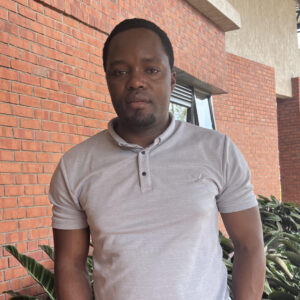Polygenic Risk Score Analysis - Africa
9–14 June 2024
Kampala, Uganda
Course Summary
The boost in collections of African genomic datasets is providing opportunities for further in-depth understanding of the causes of human diseases. As African genomic data from genome-wide analytical studies continues to grow, it is imperative that African scientists are empowered with skills to analyse these data using the latest tools and approaches for advancing research and genomics applications in Africa and globally.
This short course will equip scientists based in Africa with tools and approaches for polygenic risk scores (PRS) analysis. The course will cover both applied and theoretical topics in PRS research, delivered across a variety of lectures, tutorials, computational practicals and special guest seminars from experts in the field. By the end of the workshop, attendees should have an in-depth theoretical understanding and practical skills in PRS analysis of global populations.
The course will begin with an overview of genome-wide association studies, an introduction to PRS analysis, and advanced topics in PRS (e.g., pathway-based PRS, PRS to identify rare variants). This will be followed by the key topic of the ‘PRS Portability Problem’ and how to address it using PRS methods developed for application to diverse and admixed ancestry samples. Finally, attendees will devise, perform and present their research project as part of a group on a topic relevant to the content of the course, with feedback from the workshop team.
Target audience
Students and scientists based in Africa who are interested in the theory and/or application of polygenic risk scores, important for those undertaking research in: Bioinformatics, Genetic Epidemiology, Population Genetics, Statistical Genetics, Clinical Genetics, and Quantitative Genetics.
Programme
The course will run over 5 days and will include lectures, tutorials, computational practicals and special guest seminars from experts in the field. There will be multiple opportunities to meet the training team on 1:1 setting, and to interact with other attendees and the workshop team throughout the week, helping to foster a supportive, collegiate and interactive environment to maximise learning for all.
Topics overview
- Overview of Genome-Wide Association Study (GWAS): GWAS basics and GWAS for PRS
- Introduction to PRS: calculating PRS, running PRS software, interpreting PRS results
- Advanced PRS topics: pathway PRS, PRS to detect rare variants
- PRS in diverse ancestries: the PRS Portability Problem, PRS methods for addressing portability problems, PRS for diverse and admixed population samples
- PRS mini research project: Group project devised, performed and presented on a topic related to content from the week, performed in groups of 4-5 attendees.
Learning outcomes
At the end of the course, participants will be able to:
- Discuss the application of GWAS and PRS methods to understand disease aetiology.
- Explain the application of PRS in determination of complex disease genetic risk
- Perform essential steps for PRS analysis using standard approaches and tools.
- Apply relevant tools and software to analyse complex global (diverse and admixed) population genomics datasets
- Evaluate and interpret results generated from PRS analyses
- Customise visualisation of results from PRS analyses
Course instructors
Scientific Organising Committee

Itunuoluwa Isewon
Covenant University, Nigeria

Conrad Iyegbe
Icahn School of Medicine at Mount Sinai

Segun Fatumo
Queen Mary University of London and MRC Uganda
Training Team

Carene Ndong Sima
Stellenbosch University

Christopher Kintu
Makerere University, Uganda

Michelle Kamp
King's College London

Susan Kanjira
University of Edinburgh

Palwende Romuald Boua
Clinical Research Unit of Nanoro, Institut de Recherche en Sciences de la Santé, Burkina Faso; Sydney Brenner Institute for Molecular Bioscience (SBIMB), University of the Witwatersrand, South Africa)

Tinashe Chikowore
Harvard Medical School

Jones Gyamfi
Teeside University, Ghana

Marion Amujal
Makerere University, Uganda
Organising Team

Grace Kebirungi
African Center of Excellence in Bioinformatics - Makerere University

Charles Derrick Ssemakula
Africa Center of Excellence in Bioinformatics and Data Intensive Sciences, Uganda
How to apply
Prerequisites:
We expect that attendees will have some prior background in GWAS (ideally having previously performed GWAS analyses or otherwise having a good understanding of the basics of GWAS) and that they will be well-experienced in performing computational genetics analyses and related software. The workshop is designed for students/scientists who are familiar with computational research rather than only wet lab or clinical studies.
Target audience
Students and scientists based in Africa who are interested in the theory and/or application of polygenic risk scores, important for those undertaking research in: Bioinformatics, Genetic Epidemiology, Population Genetics, Statistical Genetics, Clinical Genetics, and Quantitative Genetics.
How to Apply
Please click on the Apply button above to begin the application process. Places are limited and will be awarded on merit. If you have any problems with the online application process, please contact us.
Please note: Applications must be supported by a recommendation from a scientific or clinical sponsor (e.g. supervisor, line manager or head of department). A request for a supporting statement will be sent to your nominated sponsor automatically during the application process. Applicants must ensure that their sponsor provides this supporting statement by the application deadline. Applications without a supporting statement cannot be considered.
Cost
The course is funded by Wellcome Connecting Science and is free to attend.
Bursaries:
Bursaries are offered based on merit to assist with travel, accommodation, and living expenses during the course. To apply, please complete the “bursary” section on the course application form. Recipients will typically be informed of their award in conjunction with their course acceptance. Please keep in mind that both the applicant and sponsor must provide a justification for the bursary as part of the application process.
Accommodation services phishing scam – please be vigilant. More information.
Testimonials
Feedback from the previous course:
“The exploration of novel methods and advanced PRS topics were really helpful. Also, the practical components to develop simultaneous skills (e.g. coding and theory). Instructors were very helpful and went through each topic from basic to advanced.”

